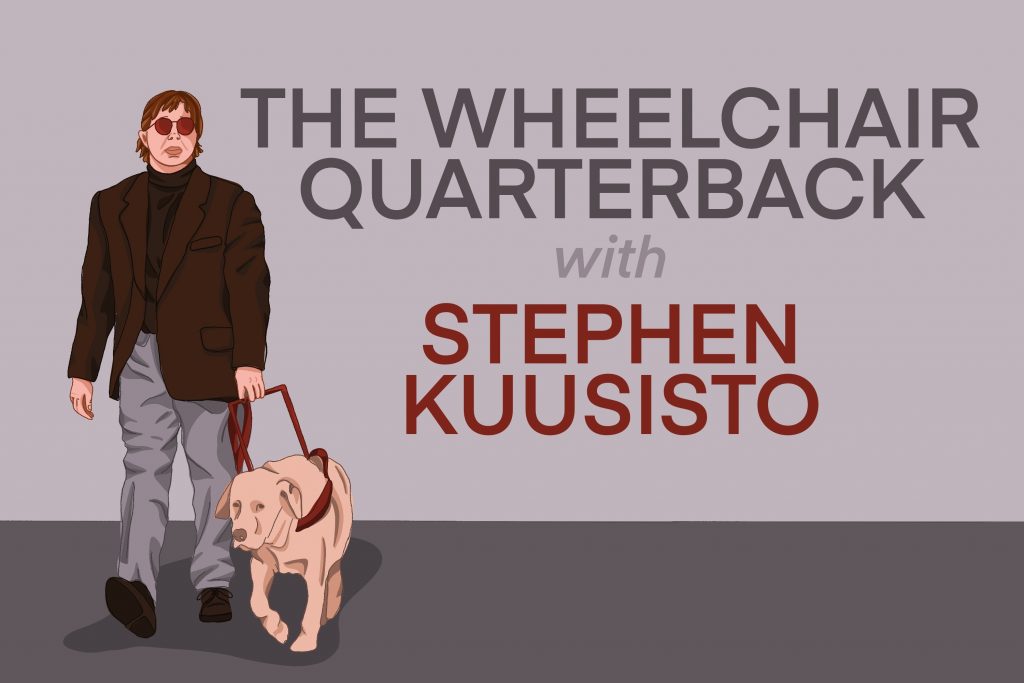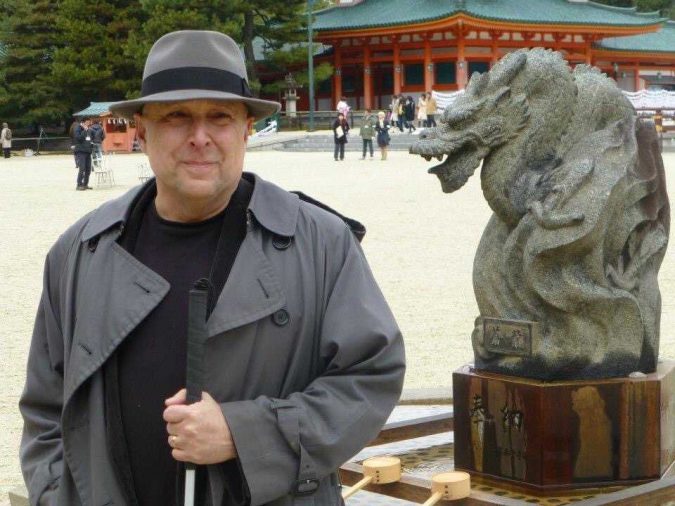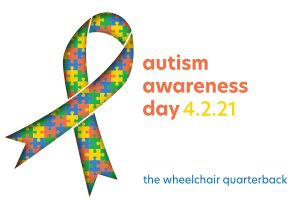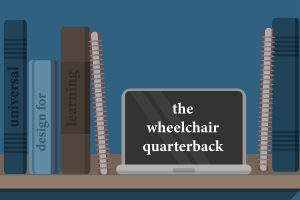Column: SU’s Stephen Kuusisto addresses intersectionality in disability rights movement
Column: SU's Stephen Kuusisto talks intersectionality in disability rights movement

The disability community has fought for every inch of progress throughout time. Providing a bridge between other social movements, the disability rights movement has become more intense over the past half-century.
Director of interdisciplinary programs and outreach at Syracuse University’s Burton Blatt Institute, Stephen Kuusisto values the diversity of the disability community. Kuusisto, author of the award-winning memoir Planet of the Blind, among other books, and receiver of the 2021 Guggenheim Fellowship in Poetry, writes poetry and has appeared on numerous programs, like The Oprah Winfrey Show, dedicating much of his adult life to disability advocacy.
In previous conversations, Kuusisto has expressed frustrations about the disability community being left out of diversity initiatives.
“The irony is that the disabled are from every background,” Kuusisto said last September.
He elaborated in a recent conversation with The NewsHouse:
The NewsHouse: How do you feel about the current state of the disability rights movement?
Stephen Kuusisto: The disability rights movement is many movements and they’re all working toward the same thing: a more inclusive, welcoming and healthy society. Some groups are working to prevent assisted suicide legislation which many feel will disadvantage disabled patients and encourage medical professionals to further devalue disabled lives.
Other organizations are involved in issues of transportation and access, fighting to make public conveyances usable; BIPOC activists are fighting against police brutality to lack of access to voting—this is only a partial list but the diversity of the disability rights scene is terrific and encouraging.
The N.H.: How do you think the movement has evolved over the years?
S.K.: I think the past ten years have been remarkable—one might think of them this way, that the Americans with Disabilities Act of 1990 was finally a grown-up. 20 to 30 years following the ADA’s signing, disability activism and culture work are more powerful and significant than ever.
The N.H.: How can society further evolve the disability rights movement?
S.K.: The critical thing is for people to recognize that disability rights intersect with every element of human rights.

This requires broader public education about disability and its relationship to everything from health care to what we call “the carceral state” by which we mean the vast mechanism of imprisonment. The largest psychiatric clinic in the United States is the Los Angeles County Jail.
We oppress people who are disabled and often without alternatives. Police violence against the disabled is also rampant. So social movements need to embrace disability if we’re going to move forward as an ethical and equitable society.
The N.H.: You’ve talked about the movement pre-ADA. Would you say it’s the strongest it’s ever been right now?
S.K.: Yes, in the US and Europe the disability rights movement is very strong and quite sophisticated. The movement is gaining momentum in many other parts of the world.
However, I don’t think the disability rights movement is coherent. Regionalism, nationality, the divide between wealthy countries and those with fewer resources, urban versus rural issues—all these come into play. If there’s a consistent theme; however, it’s that full inclusion for the disabled is absolutely necessary and in many locations entirely overdue.
The N.H.: Explain the importance of people with disabilities uniting to create change, physically or virtually.
S.K.: You can explain this as much as I can I think. Disability is a collective issue where obstacles and old-fashioned ideas are concerned. Uniting means working in concert with multiple groups, organizations, governments and where possible pushing for meaningful change. It’s not always possible but when it works, as with the passage of the ADA then everyone progresses.
The N.H.: There are not a lot of people with disabilities in political power. What consequences are there in terms of holding the disability rights movement and community back?
S.K.: Structural ableism where employers won’t employ the disabled; where businesses, public facilities, transportation are not accessible still holds people back. Globally over a hundred and thirty nations have signed the UN Charter on Disability Rights but the transformation of these things is slow.
Editor's Note:
SU magazine senior Joey Pagano’s column, The Wheelchair Quarterback, appears regularly on The NewsHouse this semester and features insights on issues facing people with disabilities with a focus on empowerment. Inspired by first-hand experiences, The Wheelchair Quarterback reports with a solutions- and advocacy-journalism approach.








